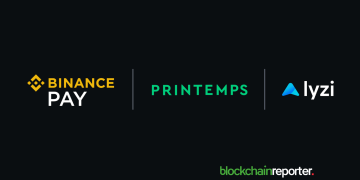BlockchainReporter sat down with Nydia Zhang of the Social Alpha Foundation to discuss the maturation of blockchain and the role of the industry in Social Good.
Do you feel that getting involved in social good lends some legitimacy to the blockchain industry?
As a young, and often misunderstood technology, blockchain and its benefits have yet to be fully realized in the real world. Myself and my co-founder Jehan Chu founded the Social Alpha Foundation in 2017 in a bid to highlight the value of making philanthropy part of the crypto and blockchain experience by funding those who can imagine and realize solutions for a better future.
When it comes to utilizing blockchain to benefit social good, we see this as an opportunity to broaden those efforts and bring them where they weren’t felt before.
You said that you feel that 2019 will be the year that blockchain ‘matures from its awkward adolescence’. Do you feel that the recent slump in bitcoin price might delay that?
Over the last ten years, bitcoin’s notorious volatility has dominated headlines around the world. However, the impact of the world’s first cryptocurrency extends far beyond price fluctuations and network value. With this in mind, it’s vital to distinguish between blockchain and bitcoin; blockchain is the technology that underpins bitcoin, but blockchain also has the power to change industries as we know them — from finance and banking to healthcare, education, real estate, entertainment, and retail. For individuals and companies utilizing blockchain technology, the price of bitcoin shouldn’t deter their focus regardless of whether we are experiencing a bear or bull market.
How much work still needs to be done to educate the public about blockchain, seeing that cryptocurrency users are still a small part of the larger world?
As a technology that is still very much in its nascent stage, a lot of work still needs to be done to educate the public about blockchain. The internet only began to gather pace during the 90s, and yet today, almost three decades later, we are still learning and discovering different elements of the world wide web. Similarly, ongoing education in blockchain is required as it continues to evolve and change. Top-level developers are constantly educating themselves on recent nuances of the technology in order to stay at the cutting edge, while those looking to dip their toes in the water have a myriad of resources at their disposal including online courses, podcasts, and tutorials.
Most of the focus of blockchain application seems to be on its use in the commercial sector. What can be done to bring more attention to the social good that can be done with blockchain?
Empowering individuals and companies to utilize blockchain technology for social good is one of the best ways to bring increased attention to how blockchain and social good can unite. For example, last year Social Alpha Foundation sponsored The Impact Summit, a three day event aimed at creating a strong community at the intersection of tech and social good by connecting computer science students with seasoned social entrepreneurs, meaningful career opportunities, and financial capital to ignite their idea.
For now, it seems that a majority of the funding that goes into blockchain-based projects comes from organizations like yours that are dedicated primary to blockchain. Do you see more ‘generalist’ organizations funding blockchain projects in the near future?
Blockchain is still a new and emerging technology, and as a not-for-profit organisation that has been at the forefront supporting blockchain education to empower communities to utilize the technology for social good, it’s only natural that the majority of funding comes from platforms like ours. As blockchain continues to gain mainstream adoption, I can see more organizations funding blockchain-based projects in the future.
While governments are slowly embracing blockchain, such as with the state of Ohio that now accepts bitcoin for tax payment, private enterprises seem to be aggressively exploring its use within their systems. Do you think the governments are lagging behind or is their current pace necessary, seeing that blockchain is relatively newer technology?
Regulatory bodies can be slow when it comes to embracing new technology such as blockchain. This can be due to a number of factors including lack of awareness and education on the topic. As blockchain is a relatively new technology to most people, including governments, there certainly has to be a learning curve to understand the technology and see how and if it is appropriate to utilize in one form or another.
What projects were the Social Alpha Foundation most excited to be involved with in 2018 and what do you have in store for 2019?
In 2018 Social Alpha Foundation was fortunate to work with a number of exciting projects, including the Blockchain Trust Accelerator (BTA), a not-for-profit collaboration between technology think tank New America, The Bitfury Group, and the National Democratic Institute with support from the Rockefeller Foundation, who are creating an Impact Ledger which is a curated online registry for social impact projects.
We also worked closely with Cornell and Tsinghua University who joined forces to host an International Workshop on Blockchain, powered by a grant from Social Alpha Foundation.
Moving forward we are excited to receive applications from projects and individuals who are seeking a grant in order to incorporate blockchain technology for social good.
About Social Alpha
The Social Alpha Foundation (SAF) is a not-for-profit grant-making platform that focuses on supporting Blockchain education and outreach to empower communities to utilize Blockchain Technology for social good.






















